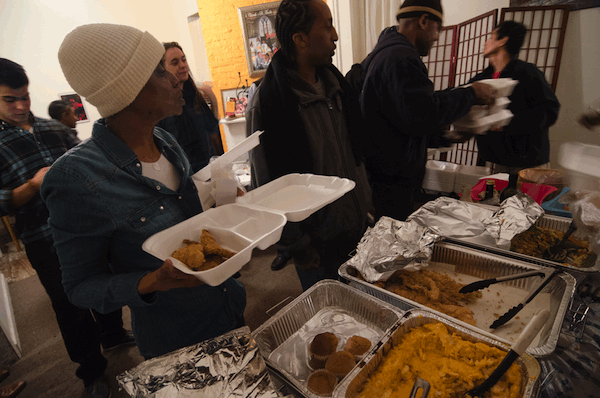Mounting debts may force Bushwick arts center to close

biko community center.gif
Claudia Cochran, who runs a mentoring program at the Biko Transformation Center in Bushwick, helped her teenage protégés assemble a buffet line at a fish fry on a recent Friday night.
The feast wasn’t a celebration: She hoped the sale of heaping plates of whitefish fillets, macaroni and cheese and other homemade fare at $10 a pop would keep what locals affectionately call “The Biko” going.
“I don’t believe that God is going to allow something like this to flourish and then let it end,” said Cochran, who works with children at the Biko Center as part of the Project Mentor Development Council.